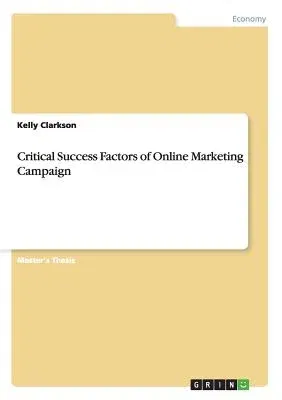Master's Thesis from the year 2011 in the subject Business economics -
Offline Marketing and Online Marketing, grade: A, The University of
Liverpool, language: English, abstract: Marketing has always been one of
the most crucial and critical functions in organizations for last
several decades. Since several years, organizations have been depending
on various marketing methods to promote products, services and brands.
As time passes, the types of marketing strategies that are considered
for have changed. Techniques that were used in 1950s shall not be
helpful for organizations that operate in today's environment. In the
same way, techniques that are currently used in today's environment
shall not be useful after 50 to 60 years (Kotler and Keller, 2012).
Unless marketing activities are planned based on present market
conditions, it is not possible for organizations to reach wide-range of
customers that spread across the world. As there are no boundaries in
the target markets of most of the organizations, organizations have to
use the combination of both traditional and online marketing methods.
While traditional marketing methods such as print, radio or television
marketing primarily restricted to tap domestic customers, it is online
marketing strategy that helps organizations to reach customers, who
spread across the world, with minimum marketing budget. Online marketing
is the process of sending marketing communications and advertising
messages to customers through various methods that used over internet.
Internet marketing forms a wide-range of techniques such as search
engine marketing, social media marketing, email marketing, affiliate
marketing, blog marketing, and buzz marketing etc. As per the recent
report revealed by Internet Advertising Bureau in 2009, the revenues of
online ad sellers have increased to $21 Billion. The global online
advertising spending in 2001 was around $82 Billion and it is expected
to grow 12-14% every year to reach $132 Billion by 20


